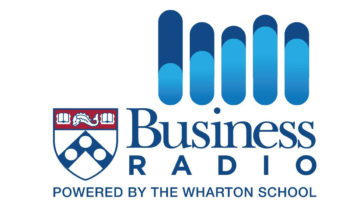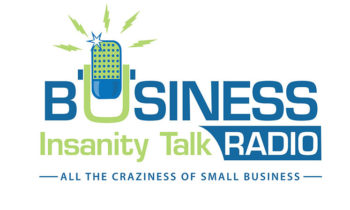Does Specialization Undermine Clients’ Understanding of and Respect for Your Work?
Can specialization actually drive down prospective clients’ understanding of and respect for your work? If so, what can you do about it?
The New Consultant Archetype
Luk Smeyers, the founder of The Visible Authority, recently singled out Tom McMakin as an example of the “new consultant archetype.” By that, Luk means someone who is transparent, helpful, empathetic, and authentic. The new consultant gives generously by sharing high-quality, educational content.
Best Books for Consultants in 2020
Luk Smeyers of The Visible Authority recommends “How Clients Buy” as one of the five must-read books for consultants in 2020.
Focus on Your Successes to Find Your Niche
An increasingly global market for services, build on your past success to define what you do best. Then, carve out your niche.
The True Size of Africa
The economy of the United States depends on reliable access to affordable manufactured goods. Tom calls on us to shake off our misconceptions and see the true size and potential of Africa, its 54 countries, and 1.2 billion people.
The Critical Difference Between Credibility and Trust
They sound like synonyms—but they’re not. Understanding the difference between credibility and trust could mean business won or lost for your business.
Translate Insight Into Action
Tom McMakin, co-author of “How Clients Buy,” spoke with Elena del Valle, the host of the Hispanic Marketing & Public Relations podcast, about how he and his team at Profitable Ideas translate insights from the book into actions to cultivate respect and trust among clients and prospects.
Business Development in the Legal Industry
Craig Levinson, Esq., recently sat down with Tom McMakin, co-author of “How Clients Buy.” They discussed reframing sales, their parallel approaches, and missteps by lawyers that undermine their client development efforts.
Doug Fletcher on Marketing Matters
Doug Fletcher joined hosts Americus Reed and Barbara Kahn to discuss “How Clients Buy” on the Marketing Matters show on Wharton Business Radio.
Trust and the Paradox of Market Focus
By shrinking the pond and tightening your market focus, you can enhance your capacity to interact with prospects over time. That yields trust and understanding, which results in a higher conversion rate.
Using the Seven Elements as a Diagnostic Tool
The Seven Elements framework presented in “How Clients Buy” represents a list of ingredients essential for business development success. As such, they can be used to conduct a self-assessment of relative strengths and weaknesses at the firm, practice, or personal level.
Firms Reflect the Values of Its Leaders
Ostensibly, Greg Levine’s interview with Tom McMakin was about how to sell services. It ended up being a conversation about values, hiring for excellence, building slack into the system, the wisdom of peers, the purpose of business, and a professional life worth living.
Why the Sales Funnel No Longer Works
The idea of a sales funnel is not just unhelpful in the world of professional services, the sales funnel is a distorted and misleading mental model. The sales funnel model causes otherwise smart people to do the wrong thing when trying to drive business development.
Learning from Rainmakers
When researching “How Clients Buy,” Doug Fletcher and Tom McMakin interviewed dozens of successful rainmakers. Their subjects ranged from solo practitioners to managing partners of global consulting firms. Doug and Tom’s goal was to field test their business development hypotheses. In addition, as Doug explains, several themes regarding the essence of rainmaking emerged from their conversations.
Doug Fletcher Featured on Business Insanity Talk Radio
Doug Fletcher, co-author of “How Clients Buy,” spoke with Barry Moltz, host of the Business Insanity Talk Radio podcast, about how selling professional services is different from—and harder than—selling tangible products.
First is Best
By all means, create content. Share the good stuff. Use inbound marketing and marketing automation—mindfully—to build awareness and understanding of your firm and its capabilities. Just don’t neglect the importance of relationships and trust. For that, you need to get personal. A sharpened focus will make the effort easier, more productive, and personally satisfying.
Trust is Everything
When it comes to professional services, Tom McMakin believes trust is everything. That’s because information asymmetries are inherent in professional services. The service provider diagnoses the disease and provides the cure, the effects of which may take a long time to ascertain. Consequently, there is a very real risk of exploitation of the buyer by the seller. So, competence isn’t enough. A higher standard of trust is required.
Sales or Marketing?
Which is more important to professional service providers: marketing or selling skills? The answer is both, contrary to common assumptions about the value of division of labor. Solutions providers conduct research and product development (marketing functions) in the same instant they present and pitch (selling functions). The need for versatility makes professional services challenging and rewarding. Above all—according to Don Scales, the CEO of Investis—we must think.
The Problem with “No Problem”
The two most dangerous words in the world of professional services are, “No problem.” The attractiveness of an expert services practice goes up in direct proportion to the power of its niche. Tom McMakin recommends a whitepaper authored by Lee Frederiksen at The Hinge Group titled, “Differentiation Guide for Professional Services Firms.”
Forget About Being Likable
Doug Fletcher is one of the most likable people you’ll meet. His easy-going manner puts one at ease. So, it’s a bit jarring to hear Doug advise, “Forget about being likable.” Instead, Doug encourages us to do great work and take really good care of our clients. In his estimation, respect and trust trump likability.




















